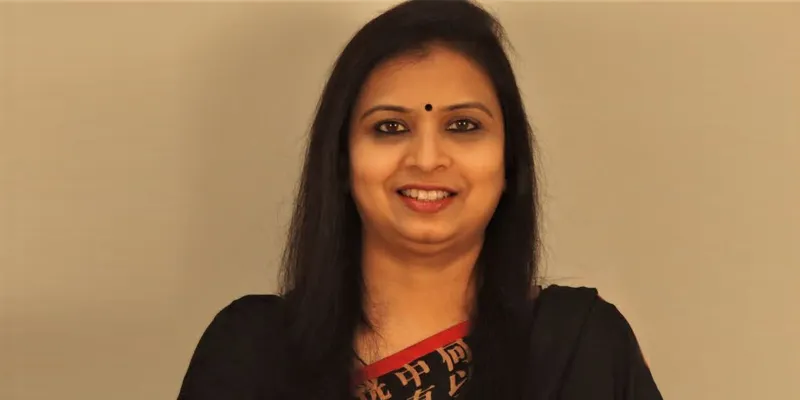Women entrepreneurship is becoming the norm in India and not an exception, says Geetika Dayal, TiE
Geetika Dayal has been in the space of entrepreneurship since 1991 when India first opened its economy to the world to the currently thriving startup ecosystem. Despite all the developments, she believes an entrepreneur must learn to believe in their idea
The perception of entrepreneurship, with its baggage of risk, has gone from being frowned upon to becoming aspirational, the new cool – taking the road less travelled.
However, nothing changes the essence of entrepreneurship, which remains “an idea married to good execution,” according to Geetika Dayal, Executive Director of TiE (The IndUS Entrepreneurs), Delhi-NCR.
In 1991, when globalisation was just beginning to fuel the consumer market in India, Geetika had her first tryst with entrepreneurship in Lucknow. She had to take over the responsibility of her family business after her father passed away.
From facing entrepreneurial odds as a 21-year-old fresher to inspiring young entrepreneurs and mentoring them for nearly 20 years at TIE, Geetika has been both a spectator and a player in the field.

Geetika Dayal, Executive Director TiE, Delhi-NCR
Charting unknown territories
Geetika shares that she lived a happy and carefree childhood in a middle-class family, and had not entered a bank till her father passed away. Along with coping with the loss, she had to face the financial burden that loomed large.
After deciding to take charge of her father’s home-based venture, she recalls that women entrepreneurs at the time, especially in smaller towns, were not taken seriously. She even faced kidnapping threats, but she was determined to remain strong and prove her worth.
“I felt left out at times. It was not that the people I worked with didn’t want to help, but they simply didn’t know how to communicate with a young girl, fresh out of college trying to strike business deals,” she says.
Travel and communication were other roadblocks. Initially, she kept addressing problems and opportunities locally, or in cities where she had relatives so that accommodation was guaranteed.
Not one to let circumstances dictate her fate, Geetika went ahead by prioritising her business. She banked on support from her mother, a ‘pillar of strength’, and an inspiration, her family members, and her own determination and grit.
“I believe we all have the inner strength to deal with situations we never imagined and the capability of seeing it through,” she says, adding that one should not be intimidated by what they do not know.
She maintains that entrepreneurship has given her insights into business, people, and herself in five years.
The 50-year-old believes that not having an option at times, makes one push one’s boundaries. She says it has been a thrilling journey where she learned at every turn.
TiE for Women
Geetika joined TiE, Delhi- NCR in 1999 when the startup ecosystem was still at a nascent stage. Two decades later, she is happy that women have shattered the proverbial glass-ceiling and risen above.
She cites examples like Padmaja Ruparel who founded the Indian Angel Network and Debjani Ghosh, President of NASSCOM while speaking of how women are leading in various fields of startup and innovation. Geetika herself has dedicated two decades of her life to TiE where she was initially a Joint Director.
Under her leadership, she led initiatives to encourage more opportunities for women investors in the country. Some of these support women entrepreneurs by providing mentorships and providing opportunities to participate in cohorts under TiE Women, BIRAC WiNER Awards that awards Rs 1 crore for women starting up in science and technology, along with a week-long accelerator programme.
They also recognise those who support women entrepreneurs through the WomENABLER Award, besides promoting favourable policies at the level of governance.
Hard-earned lessons
At the end of the day, Geetika believes one must learn to trust and have faith in what one does. “When women have unwavering confidence in their own startup ideas, they will be able to shun naysayers and compel investors to understand, believe, and invest in their startups.
Drawing from her own experience, she says that women tend to be hard on themselves and easily feel guilty, especially when there is no shortage of people who make them feel that way.
At the same time, she maintains that attitudes have changed over time, paving way for equality and less biases. And so, while chasing success is important, one must stay grounded and remain humble.
(Edited by Rekha Balakrishnan)









